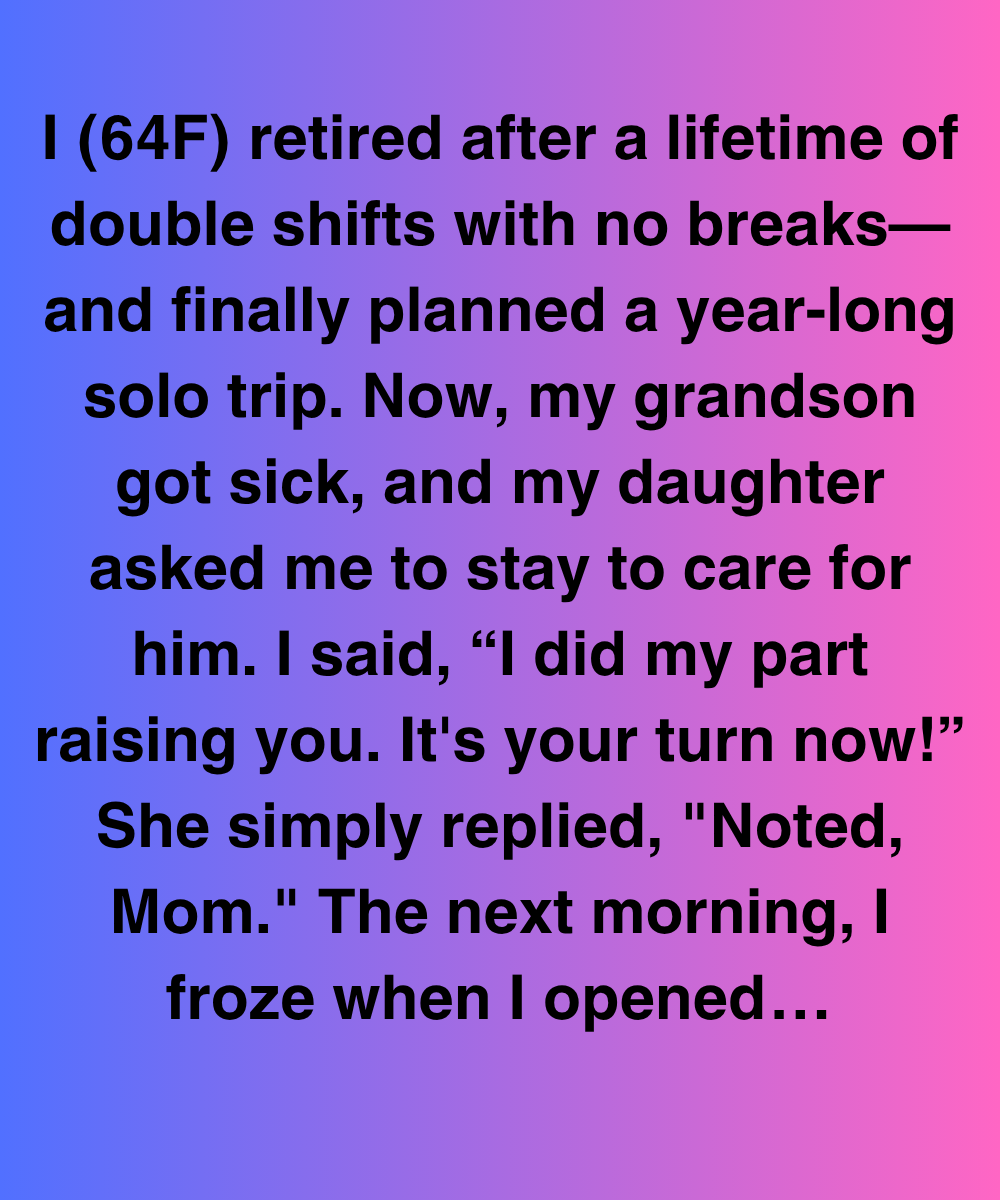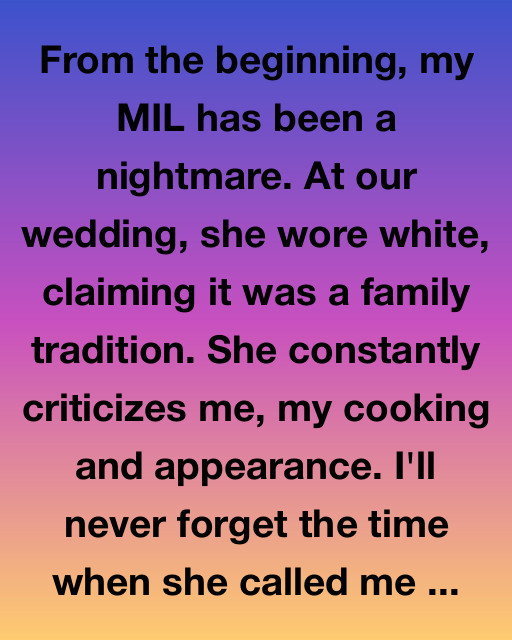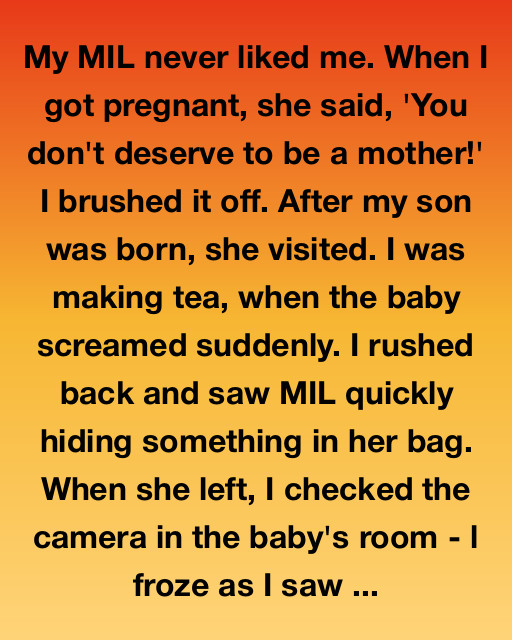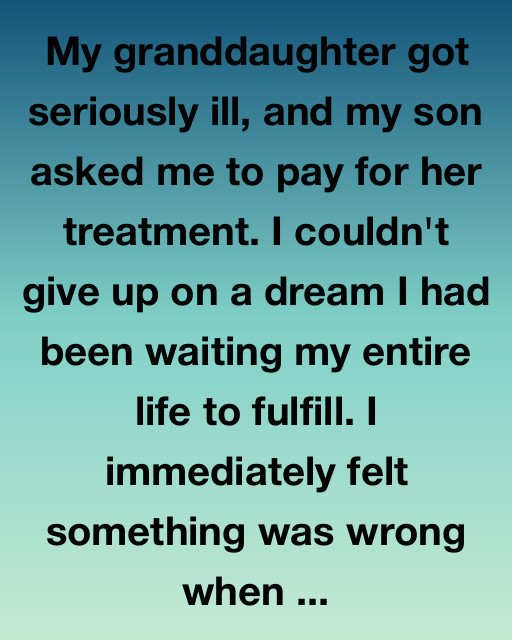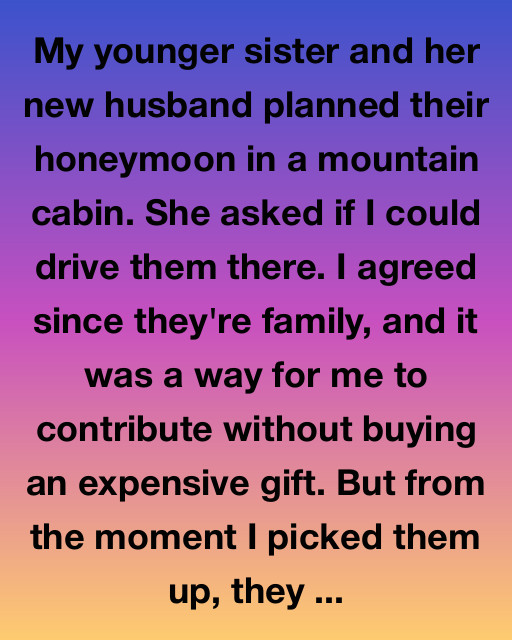I (64F) retired after a lifetime of double shifts with no breaks—and finally planned a year-long solo trip. Now, my grandson got sick, and my daughter asked me to stay to care for him. I said, “I did my part raising you. It’s your turn now!” She simply replied, ‘Noted, Mom.’ The next morning, I froze when I opened the front door and found a small duffel bag with my grandson’s clothes, a box of his medications, and a note that simply read, ‘He’s your grandson, too.’”
I stood on the porch in my robe, staring at the bag. A wave of anger washed over me. How dare she just leave her son with me like this? I was finally free, after years of putting everyone else first. I’d worked nights at a diner and days cleaning offices, saving every spare dollar to take the trip I’d dreamed of since I was a teenager. Greece, Morocco, Vietnam—I had an itinerary full of places I’d pinned on my bedroom map for decades. It was supposed to be my time.
But then I looked down and saw little Rowan, curled up on the porch bench, clutching his stuffed rabbit. He looked pale and sweaty. His breathing was shallow, and tears stained his cheeks. My anger melted into panic as I scooped him up and brought him inside. I called my daughter, Riona, immediately, but she didn’t pick up. I texted, I called again, I even called her work. Nothing. Silence.
I got Rowan settled on the couch, took his temperature, and gave him the fever medicine his doctor had prescribed. He opened his eyes and whispered, “Grandma, I don’t feel good.” My heart broke into a thousand pieces. I cradled his head and promised him I’d take care of him. My mind raced—could I still make the trip? Could I find someone to take care of him while I was away? I called neighbors, friends, even an old babysitter. No one was available or willing.
I tried Riona again that night. Still nothing. I didn’t sleep. I kept checking Rowan’s breathing, making sure his fever wasn’t rising. The next morning, I called his pediatrician and got an appointment. He had a nasty case of RSV, but he’d recover with proper care. I thought of how many times I’d nursed Riona through illnesses alone while her father traveled for work—or so he said. I felt a familiar resentment bubbling up.
That afternoon, I called my best friend, Violetta. She listened quietly as I unloaded everything—the planned trip, the sense of betrayal, the guilt creeping in as Rowan dozed in my arms. Violetta said something I couldn’t shake: “What if this is the universe’s way of telling you your adventure isn’t out there, but right in front of you?”
I wanted to snap at her, but I bit my tongue. After I hung up, I watched Rowan sleeping, his small chest rising and falling. Memories of Riona as a toddler flashed in my mind—her giggles, the way she’d cling to my leg when she was scared. Had I really done such a bad job that she thought it was okay to dump her sick son on me without a word?
That night, I found an email from Riona: “I’m sorry, Mom. I had to leave. I can’t do this anymore. I need time to think. Please, don’t hate me.” She didn’t say where she was going or when she’d be back. I felt stunned. How could my daughter just abandon her child? And what did she mean by “I can’t do this anymore”? Was she running from me, her son, her life? I spent the next few days tending to Rowan, canceling flight after flight. Each cancellation email felt like a nail in the coffin of my dreams.
But something unexpected happened as the days passed. Rowan started getting better, and in the quiet moments between medications and naps, we talked. He told me about his school, his friends, and how much he missed his mom. He showed me how to play his favorite video game, and we made a blanket fort in the living room. I laughed more than I had in years. I realized I barely knew him before this week. Riona never visited often; she was always busy, always distracted. But now, Rowan and I were connecting in a way I’d never imagined.
One morning, I woke to find Rowan gone from the couch. I panicked and ran through the house. I found him in the backyard, trying to climb the old oak tree. He looked healthier, his cheeks pink again. He grinned at me. “Grandma, I’m strong now!” he shouted. Tears sprang to my eyes. In that moment, I knew I couldn’t just abandon him to go chase sunsets on the other side of the world. He needed me right now more than I needed that trip.
I called Riona every day, leaving voicemails telling her Rowan was okay. I told her I wasn’t angry, just worried. But a week passed with no word. Then two. I started calling hospitals, friends, even the police to file a missing persons report. They said she was an adult, and there wasn’t much they could do unless I had reason to think she was in danger.
Three weeks after Rowan had been dropped off, I got a call from an unknown number. I answered, breathless. It was Riona. She was crying so hard I could barely understand her. She said she’d been in a mental health facility after a breakdown, that she’d felt like the walls of her life were closing in and she was a terrible mother. She said leaving Rowan with me was the only way she could keep him safe while she tried to get help. I sank to the floor, phone to my ear, and cried with her. All my anger dissolved. I understood now.
Riona came home a few days later. She looked exhausted but clearer than I’d seen her in years. She hugged Rowan for so long I thought they’d never let go. She apologized over and over. I told her I forgave her, and we talked until the sun came up. For the first time in our lives, we were honest with each other—about how hard life had been, about our resentments, about our regrets.
We decided I’d move in with them for a while, just until Riona felt steady again. I unpacked my suitcase and traded guidebooks for bedtime stories. Rowan and I planted a little vegetable garden together. He started calling me his “best grandma.” Each night, I’d think about the beaches of Thailand or the ruins of Petra, but I didn’t feel the same ache anymore. I felt fulfilled in a way I couldn’t have imagined before.
A few months later, on my 65th birthday, Riona and Rowan surprised me with a small backyard party. They’d hung lanterns and made a cake shaped like a suitcase. Inside the card they gave me were two plane tickets—to Santorini. Riona smiled through tears and said, “It’s your turn, Mom. I’ll be okay. And we’ll be right here waiting when you get back.”
I hesitated at first. The idea of leaving them again terrified me. But I realized something important: caring for myself didn’t mean abandoning my family. It meant coming back stronger, happier, and more present for them. I hugged them both tight and promised to FaceTime every day I was away.
Three weeks later, I stood on a whitewashed balcony overlooking the Aegean Sea, the sun setting in streaks of pink and gold. I felt freer than I ever had before—not just because I’d finally made it here, but because I knew my family was whole again. I knew my daughter was healing, and my grandson was safe and loved. And I finally felt like I could breathe.
When I returned, Rowan ran to me at the airport, nearly knocking me over. He shouted, “Grandma! Grandma! Did you see the blue water?!” I showed him pictures and told him stories. Riona looked stronger than ever. We settled into a new routine, one where we supported each other instead of feeling trapped by one another.
That experience taught me something I wish I’d learned sooner: life doesn’t always go the way you plan, and sometimes it’s the detours that bring you the richest experiences. When we put aside our pride and open our hearts, even the worst moments can lead to deeper connections and unexpected joy.
I know now that adventures aren’t just in far-off places. They’re in the quiet mornings making pancakes with a giggling child. They’re in late-night talks with someone you thought you’d lost. They’re in the forgiveness you find for yourself and the people you love.
If you’re ever faced with a choice between your dreams and your family, remember: it doesn’t have to be one or the other. Sometimes, it can be both—just not in the way you first imagined. And that’s okay.
If you felt moved by this story, please like and share it with others who might need a reminder that hope and healing can come from the most unexpected places.
